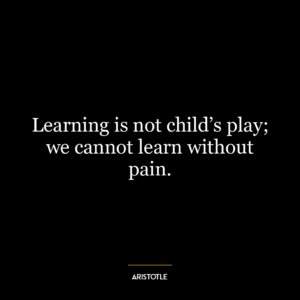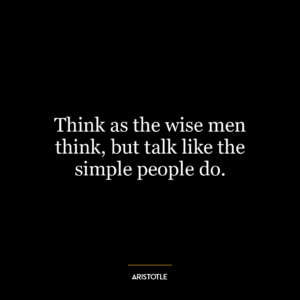This quote emphasizes the idea that virtue, or moral excellence, is not a one-time act or an inherent quality, but rather a habit or practice that is developed over time. It suggests that by consistently performing actions that are just (fair, right, or moral) and temperate (moderate or self-restrained), one cultivates virtue within themselves. Virtue, in this context, is not an end goal or a destination, but a continuous journey of self-improvement and moral growth.
The repeated performance of just and temperate actions is akin to muscle training in physical fitness. Just as one cannot expect to build muscle or increase physical strength immediately after a single workout, virtue cannot be attained by performing a single good deed. It requires consistent effort, discipline, and commitment to making morally right decisions, even in difficult or tempting situations.
This idea is still very relevant in today’s world and can be applied in various aspects of personal development. For example, in the realm of professional development, consistently treating colleagues with respect and fairness, regardless of their status or role, can help one develop a reputation for integrity and trustworthy leadership.
In the context of personal relationships, regularly practicing understanding, patience, and forgiveness can strengthen one’s ability to maintain healthy, balanced relationships. On an individual level, consistently making choices that align with one’s personal values, even when these choices are difficult or go against societal norms, can foster a strong sense of self-confidence and self-respect.
Moreover, this concept also underlines the importance of patience and perseverance in personal development. Change and growth often take time and require a consistent commitment to practicing new behaviors or ways of thinking. Just as a musician must practice daily to master their instrument or a writer must write regularly to hone their craft, individuals must consistently practice just and temperate actions to cultivate virtue.
In essence, this quote encourages us to view virtue not as a trait one is simply born with, but rather as a skill that can be developed and strengthened through repeated practice.















